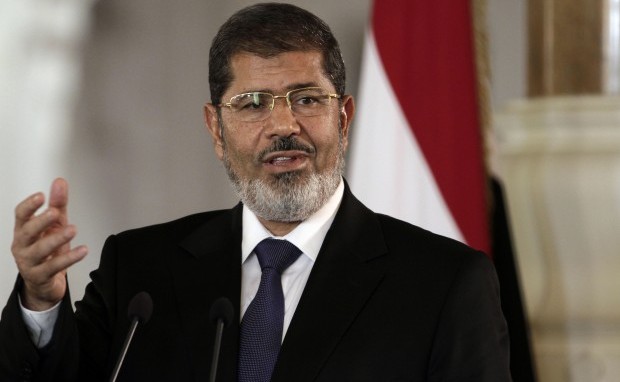A few days ago, I watched an interview with the Egyptian tourism minister on a foreign media outlet. He was trying to convince the audience that Egypt is still a hospitable country, and promised that the government would not interfere in foreign tourists’ affairs—what they drink, and what they wear or don’t wear.
Then, in a very surprising decision, the president assigned a member of the extremist group Al-Gama’a Al-Islamiyya as governor of Luxor—the most important tourist area in the country. Why the contradictory decisions? Perhaps nobody is aware, not even president Mohammed Mursi himself. It could be that the inconsistency is the result of inexperience. Alternatively, it could be a consequence of the variety of leaders within the ruling party. The Muslim Brotherhood refuses to transform and recognize a presidential system, and insists on working as per its own structure—one that places emphasis on its own leadership. In either eventuality, we are confronted with a strange situation: a presidential republic with many presidents. The Muslim Brotherhood leaders have proven to be a dangerous opposition, but they are a failed government because they refuse to adapt. As time goes on, the gap between the Brotherhood leaders and other Egyptians continues to widen, to the extent that they are threatened by a second revolution—an option that was unthinkable when Mursi won the presidential elections.
Their rivals are increasing. First, there were the leftists and the revolution’s youths. Now, military individuals, Salafists, Copts, media figures and intellectuals have joined them. The dollar, the stock market and unemployment are also factors that negate the government’s authority—and more will come. If all these come together, they will be capable of burying President Mohammed Mursi’s government, not just toppling it. But instead of communicating with his domestic Egyptian rivals in order to reassure them, Mursi has created new external adversaries. The West, which the opposition accuses of allying with the Brotherhood, may also turn against the ruling establishment. By appointing an individual from a group that is internationally classified as an extremist organization to a position of power within government, the Egyptian political landscape has become far more complicated. The leader of that group, Omar Abdelrahman, is jailed in the US on terrorism charges.
Many doubt the American position, and consider it to be one that supports the Brotherhood’s style of governance despite its anti-Western sentiment. Washington’s stance—provided the Brotherhood is willing to co-exist and cooperate with the international reality—is, simply, “Why not?” After attaining power, the Brotherhood did not waste time in reassuring everyone, including the Israelis, that they would not cause trouble externally. They have done so on several occasions through either Essam El-Erayan, a member of the Brotherhood’s political bureau, or other presidential contacts.
But actions speak louder than words. Under the Brotherhood’s governance, hundreds of tunnels that connect Gaza’s Hamas with the world were destroyed. The Brotherhood also guarded the borders with Israel and launched large-scale attacks in the Sinai, deploying heavy weaponry against terrorists. All of this can be considered a mere political act that aims to reassure the West that they are a government that respects agreements and relations.
The real threat against Mursi and his government is not the opposition or the West, but the Egyptian citizen whose aspirations increased following the promises made after the revolution. The future is bright. There is no more Gamal, Suzzane, Hussein Salam, or other symbols of failure from the Mubarak era. Month after month and promise after promise, Mursi’s government has failed to implement the many assurances that it made, even despite international loans. Egypt became a hole, widening over time. The president is digging himself in deeper by expanding the circle of rivals who will fight against him. Instead of presenting a project of cooperation to define the first presidency following the revolution, he chose to attack state institutions, mainly the judiciary, the media and the army, which are supposed to be independent. The result is not difficult to imagine.
